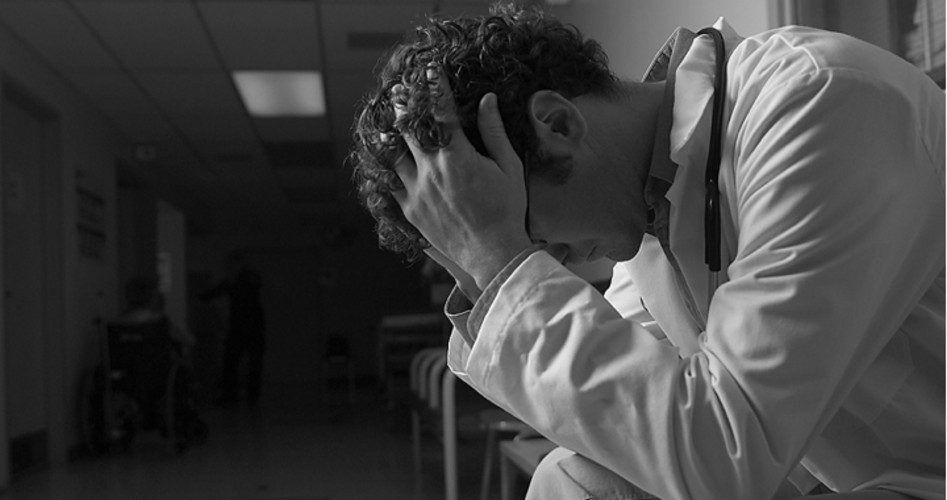
A key official with England’s National Health Service admitted that the organization needs a complete overhaul before it collapses on itself. According to NHS Medical Director Sir Bruce Keogh, the agency requires a “complete transformation.” In the same interview, however, Keogh denied that the agency is experiencing a crisis.
Keogh recently told The Guardian, “If the NHS continues to function as it does now, it’s going to really struggle to cope because the model of delivery and service that we have at the moment is not fit for the future.”
Last week, Keogh stated that the Commons Health Committee hospital accident and emergency (A&E) departments were under “considerable pressure,” with 20,000 more patients attending A&E during Christmas week than there were in 2013.
He also admitted that it would be “foolish” to believe that things would be different by next Christmas.
Noting the pressure with which GP surgeons have been contending, Keogh asserted that there should be greater access to resources and decreased reliance on hospitals. Similarly, Professor Keith Willett, the director of acute care for NHS England, told the Commons Health Committee that the focus must shift to out-of-hospital services to help reduce demand on hospitals.
Limited bed capacity has compelled 12 hospitals in England to declare “major” incidents and three others to declare “significant” incidents. Hospitals and ambulance services had to set up temporary treatment tents on the grounds of Great Western Hospital in Swindon as a “precautionary measure,” while a fire engine was used to transport a patient to a York hospital.
In December, approximately 39,000 sick patients were forced to wait on trolleys for nearly 12 hours after they were told that they were going to be admitted into the hospital.
Dr. Clifford Mann, president of the College of Emergency Medicine, said that the understaffed A&E departments, plus the lack of hospital beds, threaten the safety of patients. Chillingly, he added that in some cases “mortality increases” because of heightened pressures.
A 2014 analysis of the Royal College of General Practitioners revealed that 47 million GP appointments in 2013 involved a wait of at least one week. That is an increase of seven million from 2012, indicating a trend that would mean that this year, 57 million appointments will involve an extended wait.
The Telegraph reported that senior doctors have issued warnings that “GPs were buckling under the demands of an aging population, and that too often only those who ‘shouted the loudest’ were able to secure help quickly. Experts said some patients were forced to wait even longer than a week, with delays of up to a month for appointments for some surgeries.”
Dr. Helen Stokes-Lampard of the Royal College of GPs voiced concerns that some patients were being overlooked: “My biggest fear is that those who are most vulnerable and least assertive are getting overlooked. The patients who shout the loudest will get the urgent appointments, but many others are left waiting for far too long.”
Still, according to the Daily Mail, Keogh denied claims that GP surgeries, ambulance services, and A&Es have been struggling and are in crisis. In fact, he took offense at the use of the word “crisis.”
He asserted, “Everybody that’s working out there in the NHS knows that they’re under a lot of pressure at the moment [but] they don’t like the term ‘crisis’ being applied willy-nilly. It’s an evocative term which is also provocative and is used too freely for the wrong reasons.”
Instead, Keogh offered alternative terms to describe the exact state of the NHS: “It’s a period of unprecedented pressure, of undue pressure. But the NHS is facing very difficult times, yes. The word ‘crisis’ implies that you can’t deal with it.”
And yet Keogh seems to understand that the NHS cannot “deal with it” for much longer.
He noted that without change, the NHS will no longer be affordable and will be compelled to make choices that were supposed to be antithetical to the agency’s mission. “This will open up a whole series of discussions about whether the NHS is fit for purpose, whether it’s affordable, and whether the compact with the citizen of free healthcare for all is sustainable in the longer term,” Keogh stated.
He believes that in order for NHS to become more sustainable, multiple services must be housed in the same facility, such as diagnostic testing and wider ranges of treatment at GP surgeries. “Too many patients find the NHS fragmented (and) confusing,” he asserted. “They find that they get pushed from pillar to post; they feel like a ball in a pinball machine at times.”
And still, despite the problems plaguing the NHS, a Department of Health spokesman insisted they are not unique to the U.K.: “In common with healthcare systems around the world, the NHS is facing unprecedented demand, but undermining the principle of services being free at the point of use is not the answer.”
The solution? More money, of course.
“Instead, we are backing the NHS’s plan for the future and have provided an extra £2bn in funding next year to transform out-of-hospital care and meet the needs of an ageing population,” said the spokesman.
But will increased funding bring people back to the NHS?
Writing for Forbes, Scott Atlas, M.D., opined, “Isn’t it notable that more than 50,000 Britons travel out of the country per year and spend £161 million to receive medical care due to lack of access, even though they are hemorrhaging money for their national pride? When given the choice, Brits shun the NHS, and rightfully so.”
Yet U.K. officials are unwilling to admit defeat. On Tuesday night, while appearing on an expert panel alongside Keogh at a Guardian Live event to discuss the current state of the NHS, the Right Honorable Norman Lamb, MP, minister of state at the Department of Health, declared, “I have no interest at all in a rush to privatize the NHS or to suddenly think that private providers provide the answer.”




